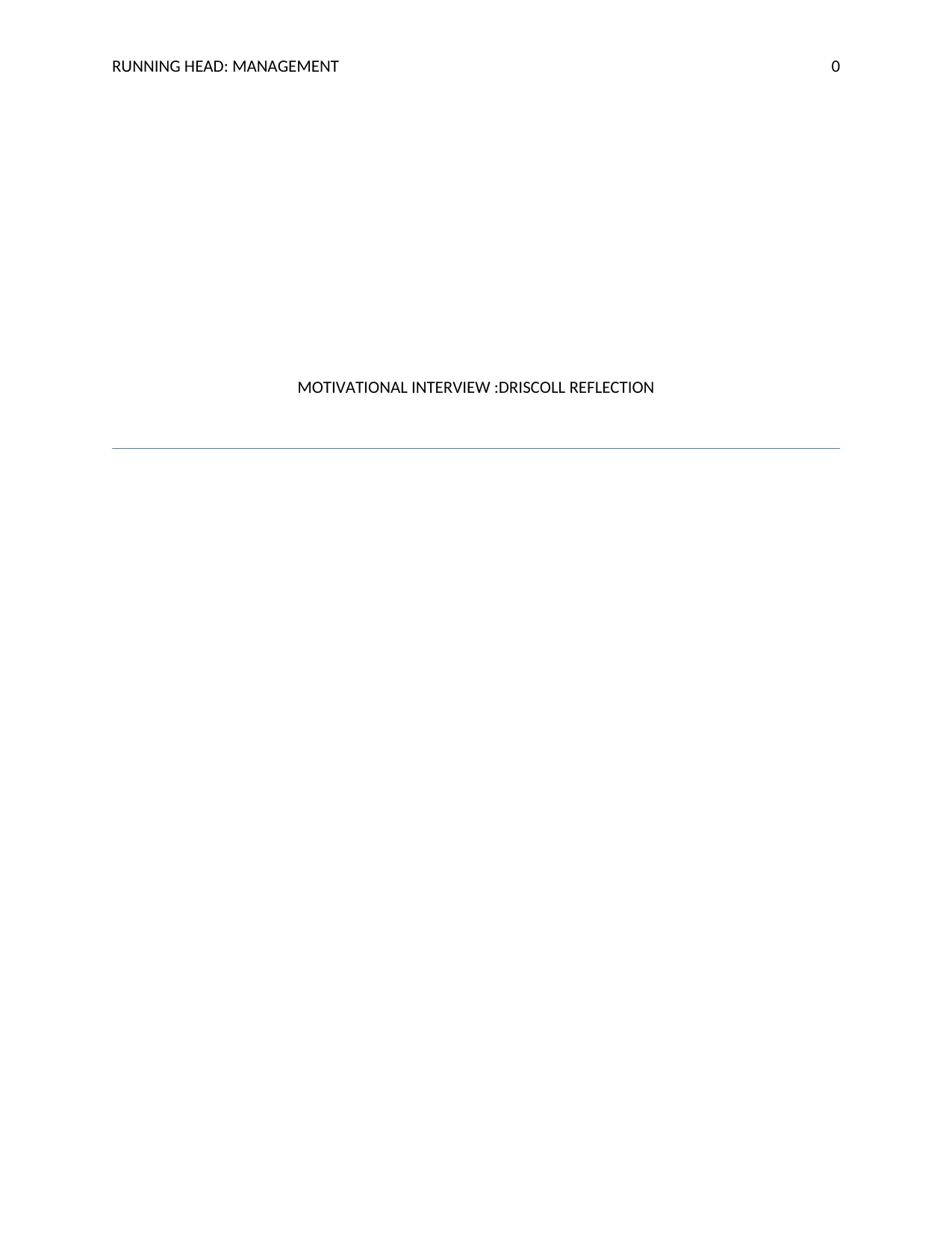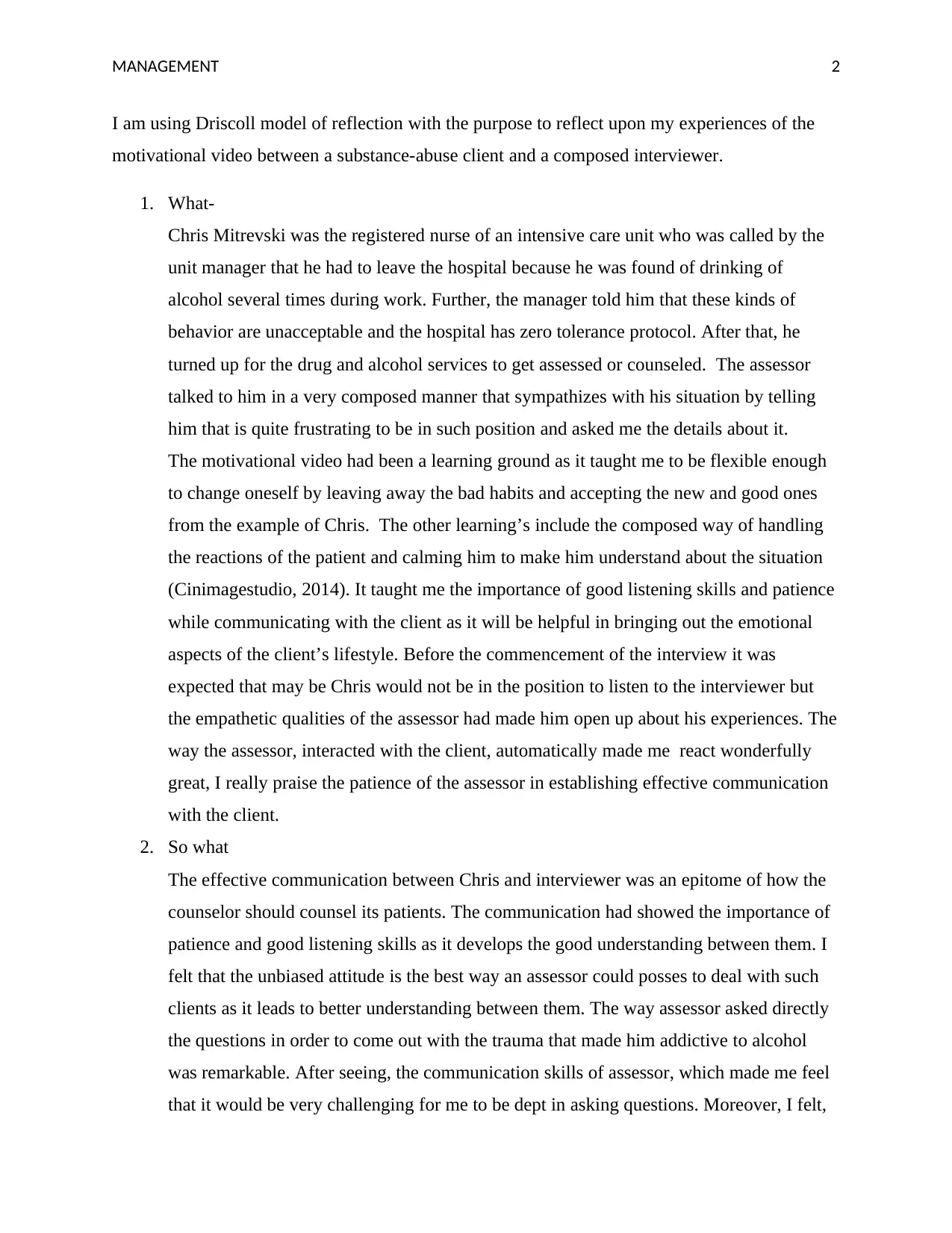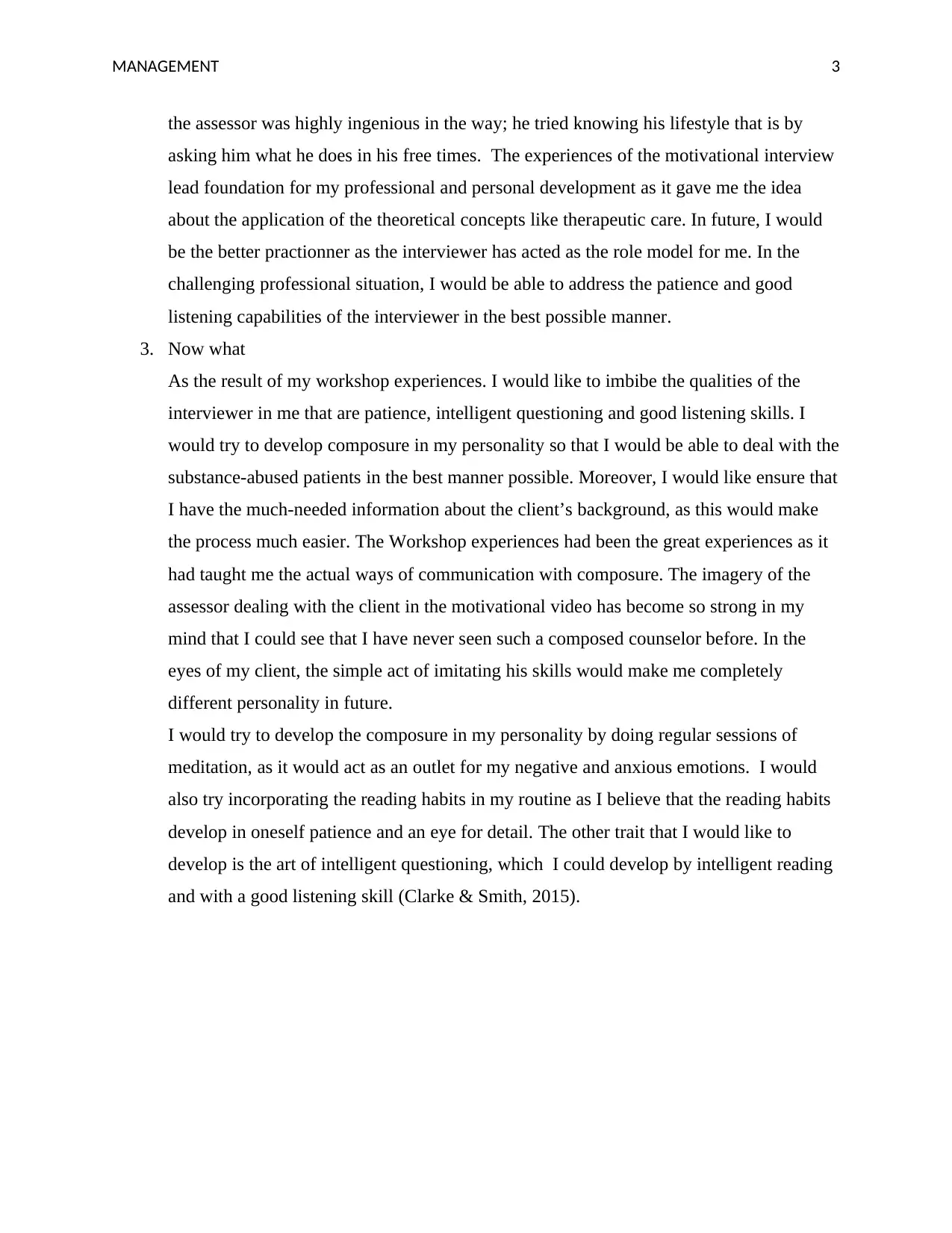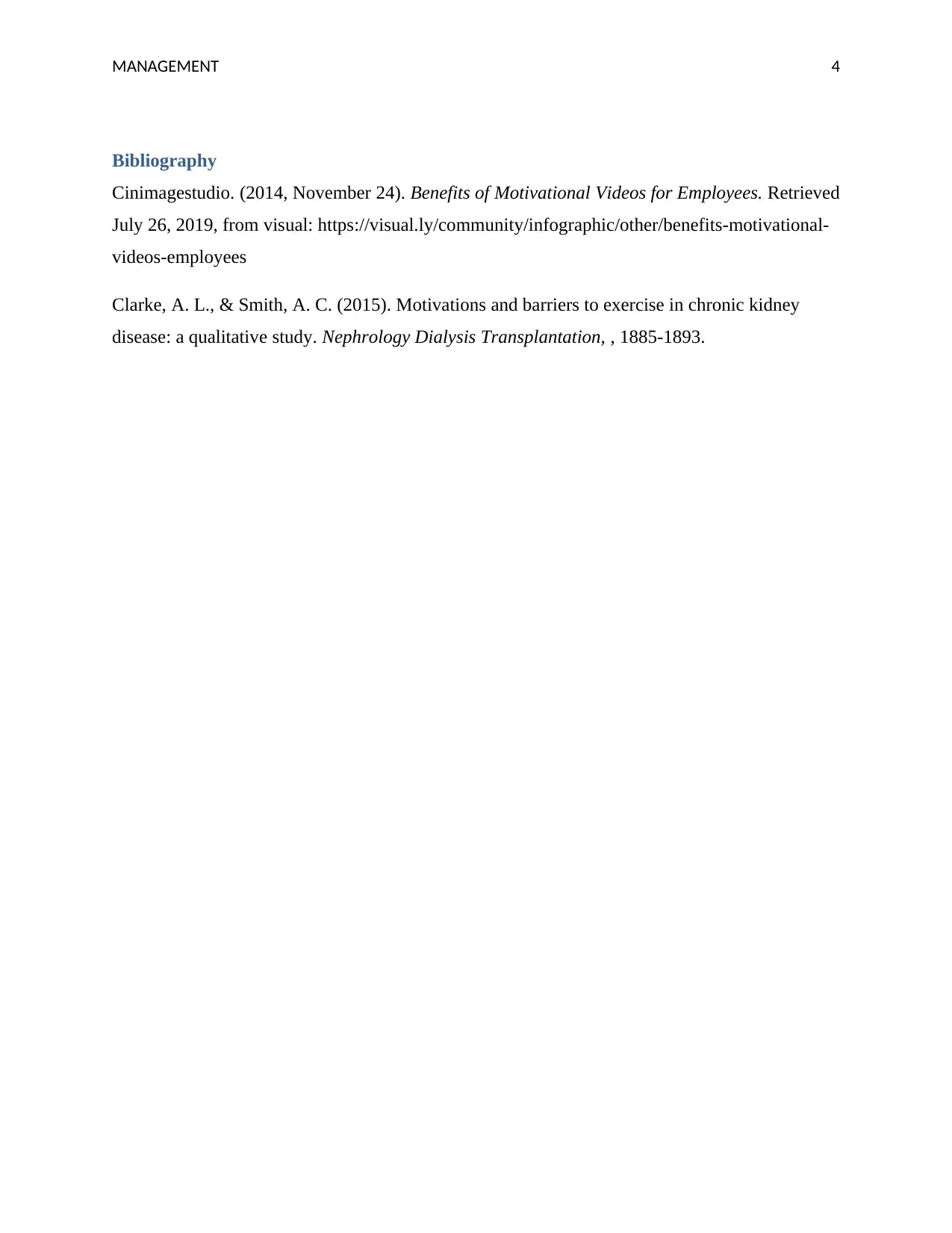SNPG939: Psychoactive Substance and Mental Health Driscoll Reflection
VerifiedAdded on 2022/08/23
|4
|890
|35
Report
AI Summary
This report presents a Driscoll reflection on a motivational interview scenario involving a nurse, Chris Mitrevski, struggling with alcohol abuse, and an assessor. The reflection analyzes the communication techniques employed during the interview, focusing on the assessor's empathetic approach, patience, and intelligent questioning. The student highlights the importance of non-judgmental attitudes, active listening, and silence in establishing a trustworthy relationship and exploring the client's emotional state. The report emphasizes the application of theoretical concepts like therapeutic care and discusses how the student intends to incorporate the interviewer's qualities, such as composure, intelligent questioning, and good listening skills, into their future practice to better address patients with substance abuse issues. The student also reflects on the personal and professional development gained from the workshop experience and the role model the interviewer played in this scenario.
1 out of 4










![[object Object]](/_next/static/media/star-bottom.7253800d.svg)